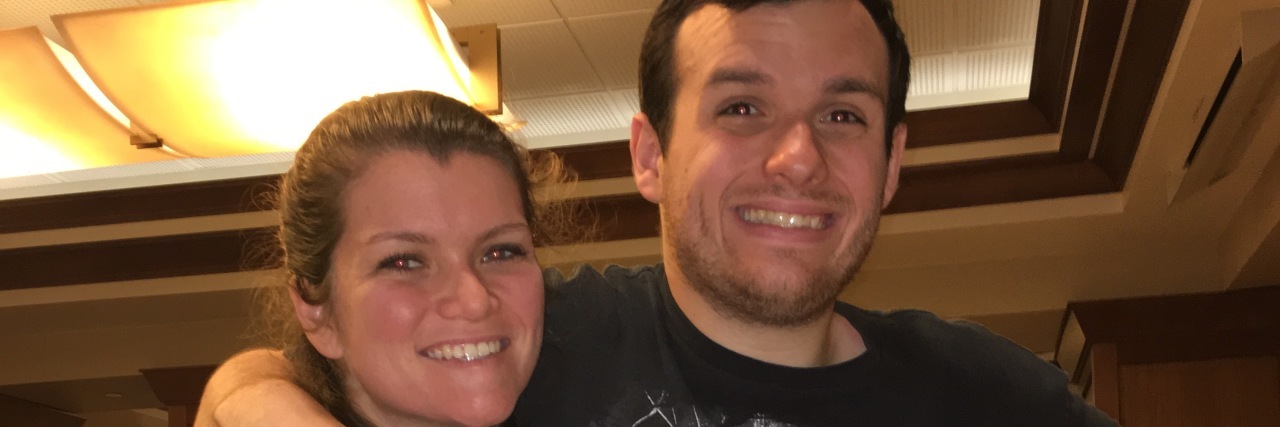I was probably around 6 or 7 years old when I realized my twin brother, Daniel, had autism. That was when I really understood what it was. Before this time, my older brother, Scott, and I would “spy” on Daniel because we thought he was pretending to act the way he did. We thought he just wanted attention from our parents. Once I understood it, I just wanted to love him. I wanted him to be OK.
The kids at school would ask me why he flapped his arms or randomly started to cry. I was so overwhelmed and almost embarrassed by these questions, that I remember asking my mom for advice as to what to tell my classmates. I looked out for him at lunch and made sure he got to class, so I had to know what to say to the other kids when they asked me about him. The other kids didn’t always understand why Daniel did the things he did, of course. They didn’t have siblings with autism. How can I expect them to understand?
What was important to me was to just have some way to tell them that he’s Daniel — he happens to have Autism — but his little “quirks” don’t define him as a person. He’s so silly, intelligent and unique. I just wanted the other kids to see and understand what I saw in him.
I started to develop an interest in hanging out with the kids in Daniel’s class. I thought they were so funny, nice, smart and different. They didn’t ask a million question all the time. Best of all, they reminded me of my brother, so I felt comfortable around them. As a 6 or 7 year old, I felt satisfaction of seeing the kids in that class very early in the morning, in the halls, at lunch time, and in the afternoon. Lunch time was the best because I got to stand in the lunch line with Daniel and his friends and help them order their food once we got to the front. I also got to sit with him and his aide every day at lunch. I remember asking her questions about her job.
I volunteered as a buddy for his basketball and soccer leagues on the weekends. I always looked forward to these days. Many of his classmates from school were on the teams, so it was fun seeing them get super excited for sports. I loved that the kids were so honest. If they were mad at you, you would know it! Best of all, there was never any drama — just love.
As I got older, I became interested in some other deep topics of autism, such as advocacy, finances, trusts and what happens when teenagers transition into adulthood. My mother is a disabilities advocate, so I had some amazing opportunities of being part of her conferences and helping her develop presentations for her workshops. Through that journey, I met some incredible professionals and families (who I just grew to adore). I knew that when I went off to college, I wanted to continue to follow in my mother’s footsteps in one way or another.
I was also ready to create my own path with this lifelong journey. In college, I worked in a group home with the adult population. I officially became Daniel’s legal back-up guardian and I earned my Master’s degree in Special Education. I’ve been teaching for about four years now, and I could not be happier. The best part about being a teacher is that I get to be the kind of teacher I would want Daniel to have. We work on life skills, music, art, movement, academics, communication, peer interaction, gross motor and fine motor activities and safety. We must have awareness, acceptance, and a space where these incredible human beings get the chance to be happy and productive members of society.

